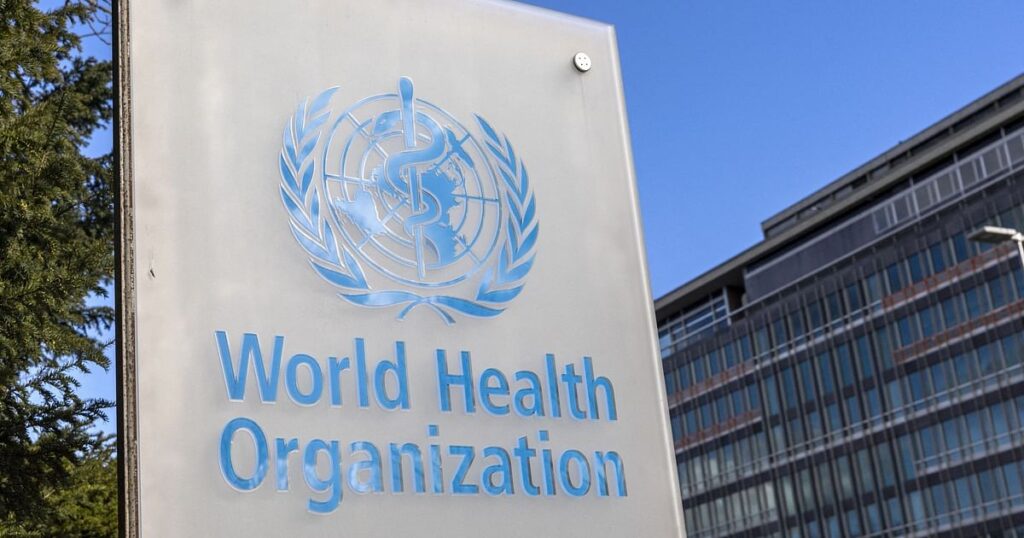GENEVA: Health officials from the World Health Organization's 194 member countries are meeting in Geneva next week, hoping to complete more than two years of negotiations on new rules for responding to the pandemic.
Negotiations reached their final stage on Friday over two complementary agreements due to be formalized at a meeting from May 27 to June 1: one updating existing health rules on infectious diseases after the COVID-19 pandemic has killed millions, and the other a new legally binding treaty to bolster global defences against future pathogens.
The World Health Assembly, expected to be attended by around 100 ministers, will be the WHO's most important moment since its founding in 1948 and some observers say it will be a defining moment for Director-General Tedros Adhanom Ghebreyesus, who is halfway through his second term in office.
What is the so-called pandemic treaty?
The WHO already has binding regulations, known as the International Health Regulations (2005), that set out the obligations of countries when public health events may cross borders, including the requirement to immediately report health emergencies to the WHO, as well as trade and travel measures.
These restrictions, introduced after the 2002/03 SARS epidemic, remain effective against local epidemics such as Ebola but are considered insufficient for a global pandemic.
Much of the impetus for the treaty comes from a desire to address the current system's shortcomings in the COVID-19 pandemic, primarily to avoid a return to the “vaccine apartheid” that Tedros has repeatedly denounced, and to ensure faster, more transparent information-sharing and cooperation.
Article 12, one of the treaty's most crucial and hotly debated provisions, envisages the WHO setting aside around 20% of tests, treatments and vaccines for distribution to poorer countries in emergencies, though negotiators say the exact percentage is still under debate.
It would be the second health agreement after the 2003 Framework Convention on Tobacco Control, a treaty aimed at reducing smoking through taxation and rules on labelling and advertising.
How will global health rules change?
The revised IHR rules include a new alert system to communicate different risk assessments of future outbreaks, following criticism that cumbersome existing rules slowed the global response to the COVID-19 emergency.
Currently, the WHO has only one emergency level – a Public Health Emergency of International Concern (PHEIC) – but the new system envisages an intermediate level called an “early action alert”.
Negotiators are also considering declaring a “pandemic emergency” for the most serious public health threats, addressing a flaw in the current system, which doesn't use the word pandemic at all.
Other revisions include attempts to strengthen countries' obligations, including one that strengthens language on the obligation to report public health events to WHO from “may” to “should.”
How do countries view the agreement?
The negotiations have been characterised by a wide rift between the positions of rich and poor countries, complicating attempts by mediators to bridge the gap.
Talks on the treaty effectively collapsed after missing a key May 10 deadline, prompting Tedros to convene an emergency meeting last week to boost morale, negotiators said.
Besides sharing medicines and vaccines, the biggest issue is funding, including whether to set up a dedicated fund or tap existing resources such as the World Bank's $1 billion pandemic fund.
Negotiations were bogged down on technical issues and sometimes dragged on late into the night.
Another factor constraining negotiators is the political pressure surrounding the treaty, with right-wing groups and politicians in particular arguing it threatens sovereignty – a charge the WHO strongly denies.
What happens next?
The new IHR rules and the pandemic agreement are designed to complement each other, and there is disagreement over whether one can exist without the other. Sources say the IHR talks are more advanced and more likely to pass.
But two Western diplomats expressed concern that the IHR talks could be held “hostage” by those seeking major concessions on the pandemic treaty.
Unlike treaties, which require ratification before they can come into force and can take years, changes to the IHR will automatically come into force after 12 months unless countries withdraw from them.
Negotiators say further talks will almost certainly be needed to define exactly what benefits the new rules would bring, unless talks collapse.
Published on May 24, 2024 at 07:22 IST



